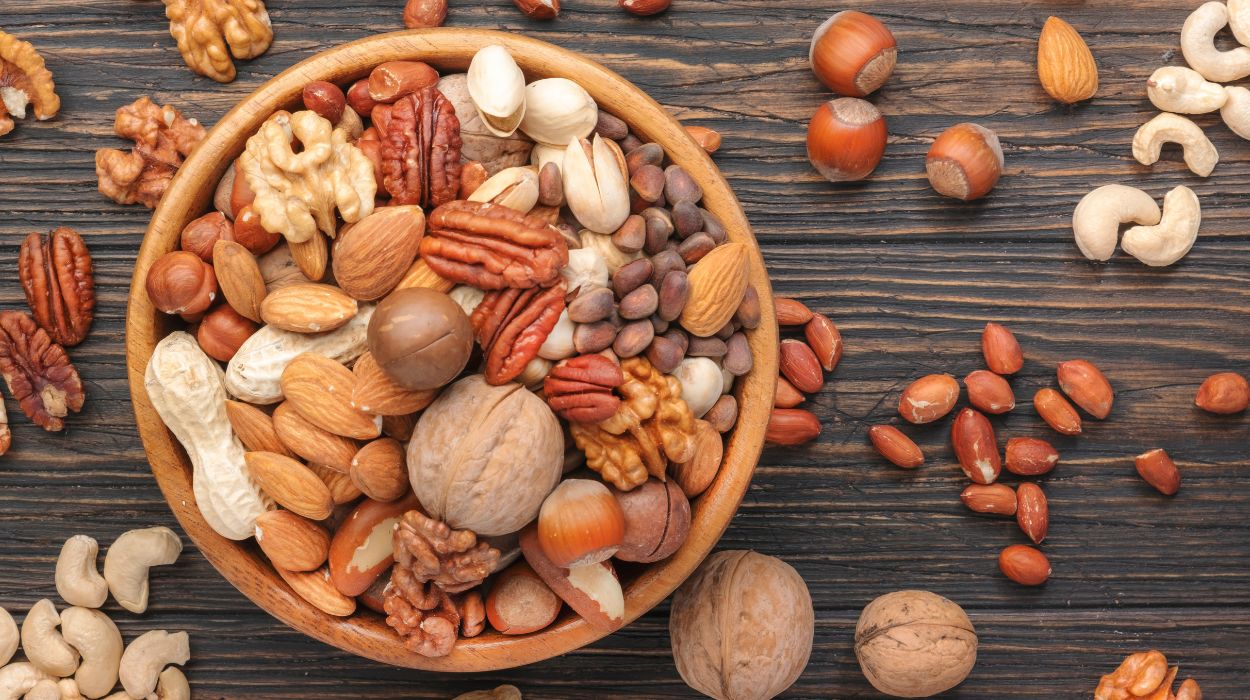If you’re struggling to gain weight, you may have a fast metabolism. One effective way to gain weight is to consume more calories than you burn, but when you have a fast metabolism, achieving this can be difficult. Fortunately, there are ways to slow down your metabolism to promote weight gain.[1]
In this article, we will discuss 5 things you should know about how to slow down your metabolism to gain weight. You can slow your metabolism by consuming high-calorie foods, increasing your muscle mass through weight resistance training, and reducing your calorie intake. It’s important to note that while slowing down your metabolism can aid in weight gain, it’s essential to maintain a healthy lifestyle and not resort to unhealthy measures like consuming too many unhealthy fats.
5 Ways To Slow Down Metabolism To Gain Weight
- Eat High-Calorie Foods:
- Keep Track of Your Caloric Intake
- Low-Intensity Exercises
- Boost Your Appetite
- Using High-Calorie Supplement
With these tips, you can slow down your metabolism and achieve a healthy weight in a sustainable way.
How To Slow Down Metabolism To Gain Weight?
Eat High-Calorie Foods

Consuming more high-calorie foods, such as nuts, dried fruits, cheese, and whole milk, can help increase calorie intake and slow metabolism. These foods provide a lot of calories in small amounts, making it easier to consume more calories throughout the day.
Keep Track Of Your Caloric Intake
It’s essential to keep track of your daily caloric intake to ensure that you are consuming more calories than you are burning. This can be done by using a food diary or tracking app.
Low-Intensity Exercises
Engaging in low-intensity exercises, such as yoga or walking, can help slow down metabolism and burn fewer calories.
Boost Your Appetite
Stimulating your appetite can help you eat more and consume more calories. This can be done by eating smaller, more frequent meals and incorporating appetite-stimulating foods like ginger and dark chocolate into your diet.
Using High-Calorie Supplement
Some people may choose to use high-calorie supplements, such as weight gainers or protein powders, to increase their caloric intake. It’s essential to consult a healthcare professional before using any supplements.
What Exactly Is Metabolism?
Metabolism[2] is the chemical process by which the body converts the food we eat into energy. It involves a complex set of reactions that break down nutrients, such as carbohydrates and fats, into simpler molecules that can be used by the body to fuel various bodily functions. A variety of factors, including age, sex, body composition, and genetics, influence metabolism.
A faster metabolism means that the body burns calories at a higher rate, while a slower metabolism means that the body burns calories at a lower rate. Understanding how metabolism works is important for those looking to gain weight, as it can help them identify ways to slow down their metabolism and increase their calorie intake to reach their weight gain goals.
Your Metabolic Rate Overview
Some people naturally have a faster metabolism, while others have a slower metabolism. Knowing your metabolic rate can help determine how many calories you need to consume to maintain, gain, or lose weight. While you cannot change your genetic makeup or age, you can make several lifestyle modifications to boost your metabolic rate and promote weight gain.
Why Do You Need To Slow Down Your Metabolism?
While most people want a fast metabolism to lose weight, some may want to slow down their metabolism to gain weight. This can be due to various reasons, such as a high metabolic rate that burns too many calories, difficulty in gaining weight or muscle mass, or an underlying health condition. Slowing down metabolism can help increase calorie intake and promote weight gain.
However, it is important to do it in a healthy and controlled way to avoid negative effects on overall health. It is recommended to consult a doctor or a registered dietitian to create a personalized plan for slowing down metabolism and gaining weight.
Foods That Help You Gain Weight

There are several foods that can help you gain weight in a healthy way. Here are some examples:
- Nuts and nut butter are high in calories and healthy fats, making them a great snack or addition to meals.
- Avocado: Avocado is high in calories and healthy fats and can be used in sandwiches, salads, or as a spread.
- Whole milk: Whole milk is a good source of calories, protein, and healthy fats. It can be used in smoothies, oatmeal, or as a beverage.
- Cheese: Cheese is high in calories and protein and can be added to meals or used as a snack.
- Brown rice: Brown rice is a good source of complex carbohydrates, which provide sustained energy and can help with weight gain.
- Lean proteins: Lean proteins like chicken, turkey, and fish are important for building muscle mass, which can help with weight gain.
- Dried fruit: Dried fruit is high in calories and can be added to oatmeal and yogurt or eaten as a snack.
- Whole-grain bread: Whole-grain bread is a good source of complex carbohydrates and can be used for sandwiches or toast.
It’s important to remember to incorporate these foods into a balanced diet and not rely solely on high-calorie options for weight gain.
Other Healthy Weight Gain Suggestions
In addition to eating high-calorie foods and performing low-intensity exercises, there are other healthy weight gain suggestions to consider. Here are a few:
- Eat frequent meals: Eating smaller, more frequent meals throughout the day can help increase your overall caloric intake.
- Choose nutrient-rich foods: Focus on consuming nutrient-dense foods like fruits, vegetables, whole grains, lean proteins, and healthy fats to ensure that you are getting the necessary nutrients to support your body’s growth and development.
- Strength training: Incorporating strength training exercises into your workout routine can help build muscle mass, increase weight, and improve overall body composition.
- Consult with a personal trainer or nutritionist: Seeking guidance from a professional can help you develop a personalized plan to meet your weight gain goals in a healthy and sustainable way.
- Get enough sleep: Aim to get 7-9 hours of sleep each night to support your body’s natural growth and repair processes.
Conclusion
In conclusion, slowing down your metabolism can be a helpful strategy to gain weight, particularly for those with a fast metabolism or underlying health issues. By incorporating high-calorie foods, tracking caloric intake, performing low-intensity exercises, boosting appetite, and using high-calorie supplements, you can effectively slow down your metabolism and promote weight gain in a healthy manner. Additionally, incorporating nutrient-dense foods and healthy weight gain suggestions such as strength training, getting enough rest, and staying hydrated can support a healthy weight gain journey. It’s important to consult with a healthcare professional or registered dietitian to ensure that you are meeting your individual nutritional needs and to create a personalized plan that works for you.
Frequently Asked Questions
Yes, it is possible to slow down your metabolism to gain weight by following specific dietary and exercise strategies.
High-calorie supplements can help gain weight, but it is important to consult with a healthcare professional before using them, as some supplements may have potential risks and side effects.
The time it takes to see results in weight gain varies for each person and depends on various factors such as diet, exercise, and metabolism. It can take several weeks or even months to see significant changes in weight.
While exercise can be helpful in gaining weight and building muscle mass, it is still possible to gain weight without exercise by increasing caloric intake and consuming high-calorie foods.
Yes, gaining weight too quickly can increase the risk of health problems such as high blood pressure, diabetes, and heart disease. It is important to gain weight gradually and healthily.
Yes, it is important to consume healthy, nutrient-dense foods while trying to gain weight to ensure that the body is receiving the necessary vitamins and minerals.
Yes, stress can affect weight gain by increasing the production of cortisol, a hormone that can lead to weight gain and difficulty losing weight.
Yes, genetics can play a role in difficulty gaining weight, as some people naturally have a faster metabolism or smaller appetite. However, it is still possible to gain weight through specific dietary and exercise strategies.
 Expert's opinion
Expert's opinion